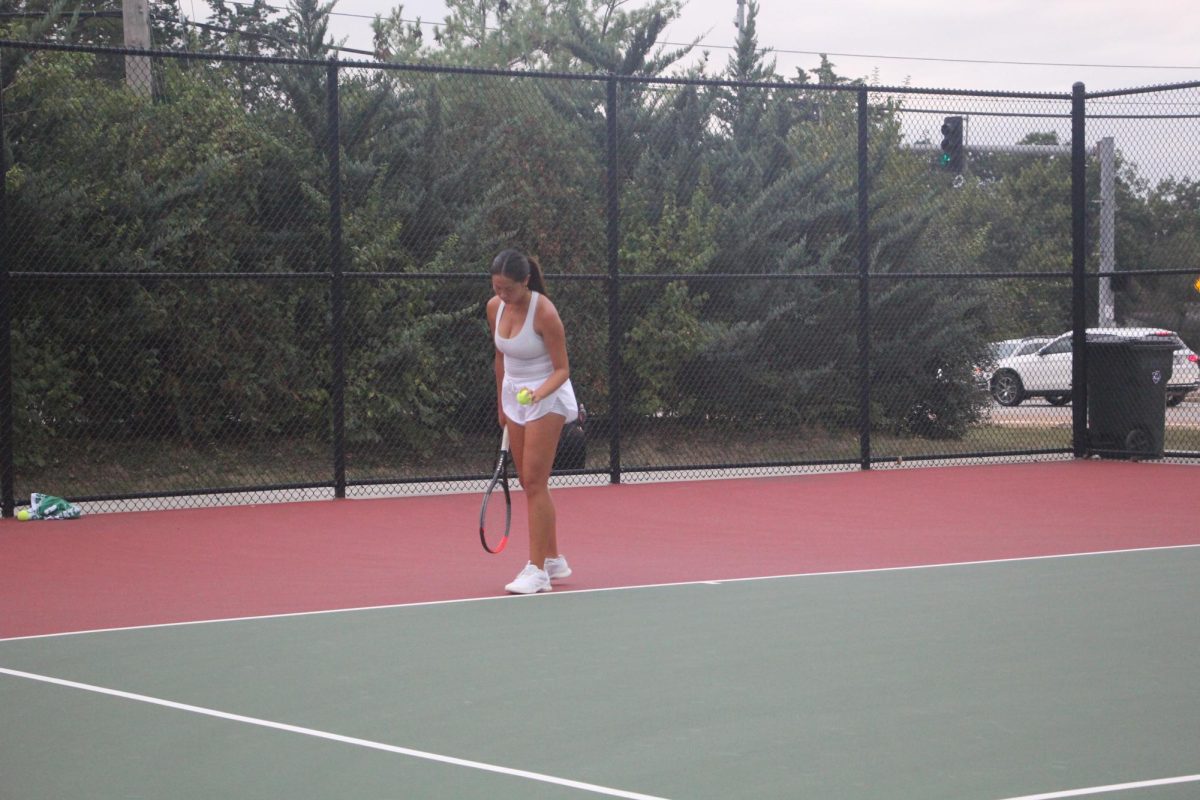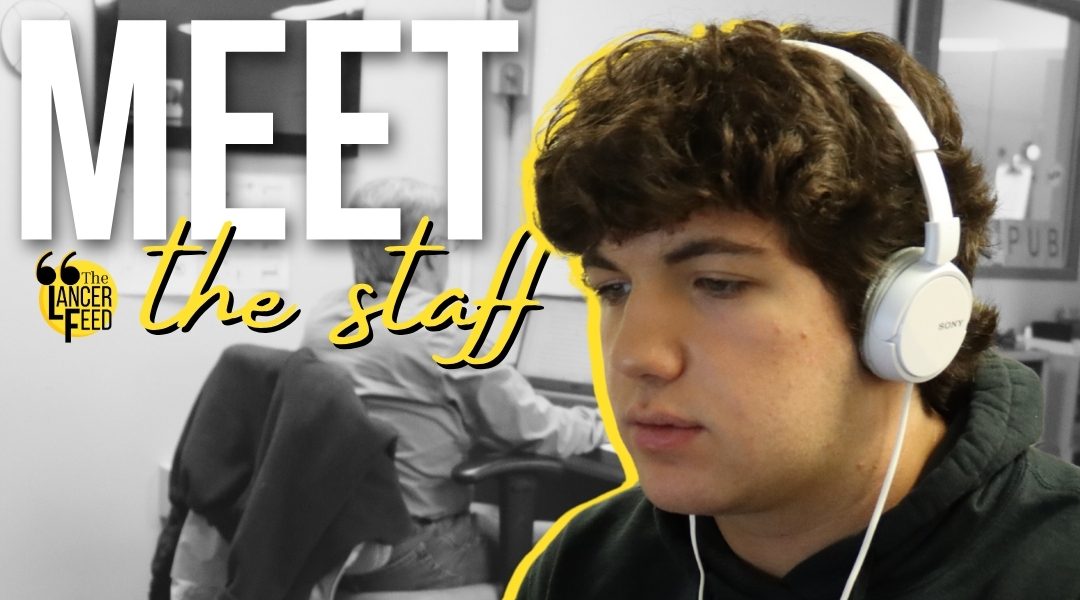Academic Pep Assembly selectively favors students over others
The lights. The blasting music. The ridiculous antics performed by teachers. It’s all a guise for what the Academic Pep Assembly (APA) really stands for, putting a handful of students on a pedestal for being naturally gifted in the world of academics. The same students that walk into the gym for having a 3.5 GPA or above circle back and walk again to be recognized for Bright Flight, then again for National Merit, and again for Glory of Missouri.
And, I do get it. Doing well in academics is tough, especially while balancing extracurricular activities, volunteering and college applications. And these kids did it. And while it’s correct to honor these student’s hard work, APA fails to recognize students that have done exemplary work outside of academics.
What about honoring the student that won a Journalism Excellence award? Or the student that earned an exemplary rating in the State Solo and Ensemble festival? Or doing more than just putting up a name on the screen to honor the winner of the Art Show? What about the people whose talents lie elsewhere than the world of academics? To most, it seems that Lafayette places emphasis only on athletics and academics.
Perhaps this is why so many students attempt to skip the Academic Pep Assembly. To those of us who are stuck between the athletically and academically gifted, we don’t feel accurately represented. We feel that our talents and our achievements aren’t being recognized by the school. Not everyone is gifted at academics, some of us study so hard for a test, yet we’re handed back a meager B grade.
Now, I’m not stating this merely to offend those who have worked tirelessly to achieve that 4.0 GPA or to those who trained unremittingly to win State Championships. Go ahead, honor the athletes and the scholars. But as a reminder to our administration, I urge them to not forget about the people in the middle. We’ve worked hard as well, so recognize us for our effort.
Your donation will allow our student journalists to continue their work. You may become a PATRON by making a donation at one of these levels: White/$30, Black/$50, Gold/$100. Patron names will be published on the website and once per quarter on our social media accounts.








































Tallis Lockos • May 3, 2018 at 3:39 pm
Hi, Sundarrajan.
Excellent points in this piece. I would like to expand on these ideas a bit.
You wrote “honor the athletes and scholars.” Then suggest the rest are “people in the middle.” To further your discussion, lets consider two general points you made, essentially “recognizing” intelligence and athleticism.
First, intelligence. About 100 years ago, higher education was an upper class privilege. Anyone could attend Yale or Harvard. As long as they were white, male, and wealthy. So we began this idea of assessing one’s individual merit, rather than privilege, as a criteria for admission. The IQ test, developed in 1905 paved the way for the SAT in 1926. Obvious flaws included cultural and racial bias, and teaching to a test. And let’s get real- the notion that intelligence can be measured based on standardized testing is laughable. But that’s what we do. Politics trumps pedagogy. Teachers are held accountable for students’ progress, so the focus is on testing, not assessment. Testing is summative and has nothing to do the process of teaching and learning transactions. Testing actually reduces a student’s capabilities.
Look at the MAP test, the ACT, and SAT. There’s not even an attempt to recognize areas of intelligence like creativity and social intelligence. No one gives a thought to musical ability or tradesmanship. We all know what matters, how schools are rewarded, and how teachers are judged- by a multiple guess, written test over math, language, and reading.
What role does society and culture play in “intelligence?” Bobby Fischer was considered a genius-a chess grandmaster and a World Chess Champion with one of the highest IQs ever. Let’s suppose Fischer was born in 1979 Iran, where playing chess was banned and forbidden. Suddenly, that same genius is a paranoid, anti-Semitic, insufferable brat. Or imagine he was born in rural Zambia, where one’s cleverness and social responsibility determine intelligence. Big deal. He could play chess. Without that, he had nothing. He was not a productive member of society and contributed almost nothing to humanity.
If you haven’t yet. read a bit on Multiple Intelligence Theory. Howard Gardner and Robert Sternberg. We all know people who excel on tests at school, get straight A’s, and in other areas don’t know their ass from apple butter. Why do we place so much value on Math and Language? Because that’s what’s on the test.
Regarding sports- we sure do love football. Makes a lot of money for the school. Who cares that our students suffer concussions. In 2016, the highest paid public employee in 39 states, was either a college football or basketball coach. And those star college athletes are used, can’t legally accept cash for play, and can graduate college without even knowing how to read English or write a persuasive argument.
Some arguments can be made about the most difficult feat in sports. Pole vaulting, hitting a baseball, decathalon are typical choices to top the list. Football? Never. Some football players, such as linesmen, won’t run 100 yards in an entire game. Some just kick a ball a couple times. And we idolize their athletic ability more than any cognitive, mental superiority.
American students are forced to run in a race where they are are expected to all reach the same finish line at the same time. But some students have head starts. Some start miles behind the starting line. Some may not have full use of their legs or arms. But we, as a society, are foolish enough to believe those students should finish that race at the same time and place.
LIfe is not fair. The longer you live, the more you see it, and you have to either let it go or spend life frustrated. OR, you can choose to be the MLK, Gandhi, Dalai Lama, or creative genius. Do it for yourself. You do not require validation and adulation from others. And don’t ever expect the real world to act in a logical manner.
Finally, to me, my daughter’s musical education matters more than calculus. I received an A in college calculus. Now, not being a scientist or engineer, it sure does feel like a lot of time wasted doing something that has not enriched my life nearly as other things have. Don’t ever let others determine your value and self worth.
So, do you have a career in mind? The world needs polymaths/ multipotentialites too. You be you.
Tallis